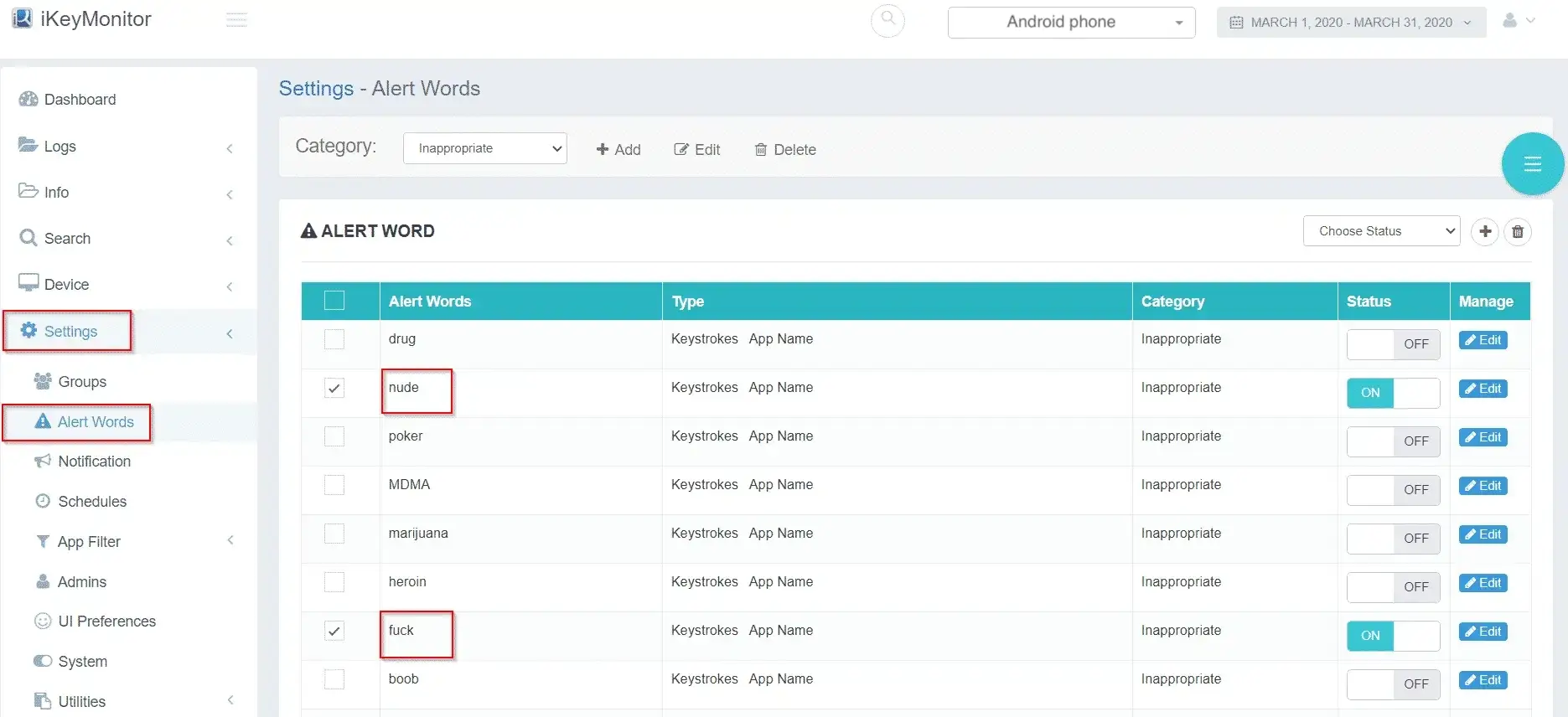How to Protect Teen’s Privacy Online? 2026
Protecting your teen’s privacy online is more important than ever. Teen privacy covers everything from personal details to the content they share online. If it’s not properly protected, a teen’s online reputation could take a hit. To keep your child safe and their information secure, it’s essential to take a few key steps to protect their privacy across different online platforms.
Why Protecting Teen Privacy Online is Important
Teens are constantly online, whether it’s through social media, gaming, or just chatting with friends. While the internet can be a great way for them to connect and express themselves, it also comes with serious risks. Protecting teen privacy isn’t just about keeping things secret; it’s about safeguarding their safety. Here are three key reasons why it’s crucial to protect your child’s privacy online:
Preventing Identity Theft
Teens often unfamiliar with the dangers of oversharing, may unknowingly expose personal details like their full name, address, or birthdate on public platforms. This information can easily be used by cybercriminals to commit identity theft. By protecting teen online privacy, you can minimize the risk of their information being exploited for criminal purposes.
A 2023 Experian report found that identity theft among minors increased by 23% from the previous year. The study revealed that approximately 1 in 50 children had their personal information stolen and used fraudulently.
Protecting Their Online Reputation
The things teens post online today can stick around for years. Even if they delete something, it might still be out there, saved by others, or cached by search engines. A single impulsive post or a photo they regret later can end up following them into adulthood. Protecting their privacy ensures they can express themselves without worrying about the long-term impact of what’s shared.
Shielding Them from Cyberbullying and Predators
Teens are particularly vulnerable to cyberbullying and online predators. If their personal details, like where they live or what they’re into, are public, it makes it easier for bullies or dangerous people to target them. By protecting child privacy online, you reduce the chances of them encountering these risks.
According to a 2023 survey by the Cyberbullying Research Center, 37% of teens reported being bullied online. The study also found that over 50% of students experienced negative effects from cyberbullying, including anxiety and depression.
The National Center for Missing and Exploited Children (NCMEC) reported that in 2022, over 29 million online enticement reports were made through its CyberTipline.
7 Tips for Protecting Teen Online Privacy
As teens become more active online, it’s crucial to guide them on how to protect their privacy. With the right tools, conversations, and habits, you can help your teen navigate the digital world safely. Here are some practical tips to help you protect teen’s privacy online:
1. Set Strong Privacy Settings
Make sure your teen’s social media accounts are set to private. Review the privacy settings on platforms like Instagram, TikTok, and Snapchat to limit who can see their posts and personal details. Encourage them to only accept friend requests or messages from people they know.
2. Educate About Oversharing
Teach your teen the risks of oversharing personal information, such as their location, school, or even vacation plans. Help them understand that once something is posted online, it can be difficult to remove completely.
3. Monitor Online Activity
Stay involved in your teen’s online life without being overly intrusive. Use parental control tools and talk openly about the websites, apps, and games they use. Regularly discuss their experiences online and any potential risks they encounter.
4. Encourage Secure Passwords
Help your teen create strong, unique passwords for each account. Avoid using easily guessed information (like their name or birthdate) and consider using a password manager to keep everything secure.
5. Limit Location Sharing
Advise your teen not to share their location in real-time on social media apps. Most platforms allow location tagging, but it’s safer to keep this feature turned off to prevent strangers from tracking their whereabouts.
6. Discuss Cyberbullying and Online Safety
Have ongoing conversations about cyberbullying and what to do if they encounter it. Make sure they know how to block or report harmful users and encourage them to come to you if something doesn’t feel right online.
7. Regularly Review Digital Footprints
Encourage your teen to search their own name online to see what information is publicly available. Help them remove any content they regret sharing or that could negatively impact their future reputation.
Protect Teen Privacy with the iKeyMonitor Parental Control App
iKeyMonitor is the best parental control app that allows you to keep your teens safe online. The app offers key features like keystroke tracking to see what’s being typed, periodic screenshots to detect suspicious content, and keyword alerts for potentially harmful posts. It also monitors social media, messaging apps, call logs, and real-time location through GPS tracking and geofencing. With iKeyMonitor, you can protect your children from cyberbullying, online predators, scams, and other online threats.
Take Screenshots to Detect Suspicious Photos
iKeyMonitor periodically captures screenshots of your teen’s mobile activities, allowing you to spot any signs of inappropriate content or privacy breaches. If you notice suspicious photos or messages, you can have a conversation with your teen about responsible behavior and potential risks.

Track Keystrokes to Monitor Online Activity
By tracking every keystroke on your child’s smartphone, iKeyMonitor gives you a clear view of everything they’re typing. This feature helps you identify if your teen is sharing sensitive or personal information online, ensuring they don’t accidentally leak data or fall victim to scams.

Set Up Keyword Alerts to Detect Posted Content
iKeyMonitor allows you to set up keyword alerts, helping you monitor what your teen is posting or sharing online. If a specific keyword is triggered, whether it’s related to risky behavior, inappropriate language, or other concerns, you’ll receive an instant email alert, enabling you to address the issue right away.

FAQs About Teenager Privacy Online
Q1. How can parents monitor their teen’s online activity?
Parents can use tools like iKeyMonitor to track text messages, social media, and browsing history, helping them keep an eye on their teen’s online behavior while respecting their privacy.
Q2. What are the risks of sharing personal information online for teens?
Teens may unknowingly share sensitive data, putting themselves at risk of cyberstalking, identity theft, or exploitation. Educating teens about privacy settings and using monitoring apps like iKeyMonitor can help reduce these risks.
Q3. Should teenagers use private browsing modes?
Private browsing can protect a teen’s browsing history from being saved, but it doesn’t guarantee complete privacy.
Q4. How can teens ensure their social media accounts are private?
Teens should adjust privacy settings on social media to limit who can see their posts and personal information. Using a monitoring app like iKeyMonitor can also help track social media activity.
Q5. How do I talk to my teen about online privacy?
Start an open conversation about the risks of sharing personal information online and how to set strong privacy settings. Tools like iKeyMonitor can help you monitor their online interactions while fostering trust.
Conclusion
These are some effective ways to protect teen’s privacy online. If you’re concerned about your child’s safety on the internet, consider using the iKeyMonitor parental control app. It allows you to monitor your child’s activities discreetly and remotely. Sign up today and take the first step in keeping your child safe online!

Tags: facts about teenagers’ privacy, protect teen privacy, protect teen privacy online, teen privacy
Category: Learning & How to, Parental Control Tips